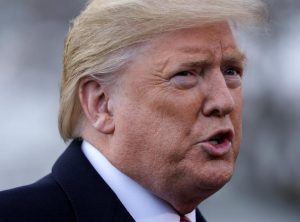
Investors around the world say they see the China-rest of the world relations, the trajectory of the Covid-19 pandemic, the U.S. election and Brexit as their top concerns going into the last six months of 2020.
The observations from Nigel Green, chief executive and founder of deVere Group, one of the world’s largest independent financial advisory and fintech organisations, come as the world readjusts after arguably the most turbulent six months in more than 70 years.
Green said: “On the very first day of this new decade, the media reported for the first time on an outbreak of viral pneumonia in the Chinese city of Wuhan.
“Six months on and Covid-19 has changed the world forever.
“We’re in a new era and this will, of course, have potential repercussions on investment decision-making as we move into the second half of this most unusual of years.
“As investors, we should brace ourselves for more headwinds, which are likely to drag on growth and returns, than tailwinds, which enhance growth and help fuel positive returns,” he said.
According to the deVere CEO, he believes there are, currently, four key headwinds that investors need to monitor carefully in H2 2020.
“First, relationship developments between China – the world’s second largest economy and major driver of global economic growth – and the rest of the world.
“The major areas of concern are the simmering trade tensions with the U.S. – the world’s largest economic power; the fallout from allegations from some Western leaders regarding China’s culpability in the coronavirus pandemic; the impact of international condemnation regarding Beijing’s crackdown on Hong Kong’s independence; and accusations of ‘state-sponsored’ cyber attacks.”
He continues: “Second, how easing coronavirus lockdowns and reopening of society and economies could cause new accelerations in infections which would dampen hopes of a quick and sustainable economic recovery.

“Third, the uncertainty that can be expected to be triggered by this year’s U.S. presidential election.
“The 2020 U.S. presidential election is seen by many as particularly important as not only will whoever wins be the CEO of the world’s largest economy, they will be in that role as the world economically readjusts following the global fallout of coronavirus.”
“And fourth, the risk of a no-deal Brexit for the UK, EU and global economies remains a key headwind. The UK government has so far not withdrawn from its threat to walk away without a trade agreement in place, despite the mass financial disruption caused by the pandemic.”
All in all, there’s more uncertainty to come that could affect global investors. However, there are three major tailwinds, says Nigel Green.
“First, governments across the globe are willing to provide considerable, often historic, levels of stimulus to support economic recovery.
“Second, central banks around the world have said that they do not believe that they are yet out of significant ammunition.
“And third, the rise of fintech has led to more and more individuals across the world successfully saving and investing for their future at reduced costs.”
In this vein, after the U.S. Federal Reserve’s last expansion to its already record-beating stimulus programme on June 16, the deVere CEO said: “This extra stimulus acts as a ‘backstop’ or ‘floor’ for equities.
“The additional Fed support was widely expected by the markets and therefore, investors who have been paying attention have been topping-up their investment portfolios recently as entry points will inevitably continue to go higher as we move forward.”
Green concludes: “There are challenges as well as major opportunities ahead for the second half of 2020.
“Investors should remain invested because history teaches us that markets go up over the long term.
“In addition, investment portfolios must be adequately diversified across asset classes, sectors, regions and currencies. This is the investor’s best weapon to capitalise on the opportunities and sidestep risks.”







